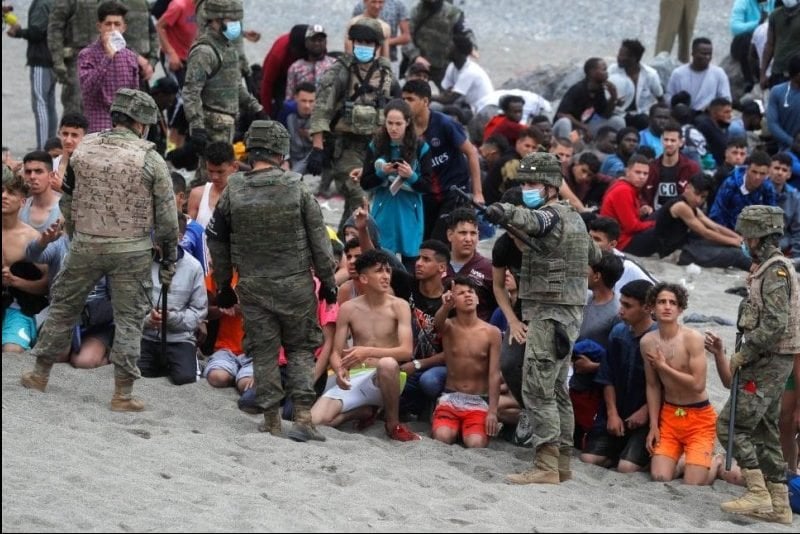
More than 1,000 unaccompanied migrant minors are currently living in Morocco, according to a new report from the International Organization for Migration (IOM), raising alarm over the growing scale of child vulnerability along migration routes in North Africa.
The data, released Monday, records 1,024 unaccompanied children, with over 60%—a total of 639—coming from foreign countries, notably Guinea, Senegal, and Côte d’Ivoire.
The remaining 375 are Moroccan nationals. Of the total, 704 are boys and 320 are girls, with 93% aged between 13 and 17. The remaining 7% are under the age of 13, a group the IOM classifies as critically vulnerable.
The IOM, in collaboration with Moroccan authorities and civil society organisations, is operating in key urban centres including Nador, Casablanca, and Marrakech.
These efforts involve mapping the children’s profiles, assessing their needs, and providing access to education, legal protection, and humanitarian assistance. In 2024, 109 minors enrolled in language programmes designed to foster integration.
The report also highlighted the broader scope of migration management in Morocco. A total of 2,196 migrants from 32 nationalities were voluntarily returned to their home countries—523 to Côte d’Ivoire, 453 to Senegal, and 410 to Guinea.
Additionally, 2,550 Moroccans stranded abroad, particularly in Turkey, were assisted in returning home. Individual cases were also recorded from countries including Germany, the Netherlands, and Iran.
Morocco continues to play a role in global refugee resettlement efforts. In 2024, 176 refugees were relocated to the United States and 205 to Canada, with the majority fleeing from crisis-hit nations such as Syria, Afghanistan, Sudan, and Ethiopia.
The IOM reports a substantial increase in humanitarian support.
Medical care was provided to over 86,000 people, up 60% from the previous year.
Assistance programmes covering psychological, nutritional, and legal aid reached 21% more individuals, with special attention given to orphans and victims of human trafficking.
In the fight against trafficking, the IOM assisted 40 victims, including 10 Moroccan nationals exploited in Oman, Turkey, and Thailand.
Twenty-seven foreign victims chose to remain in Morocco, where they received emergency support and protection.
Efforts to support social integration have also accelerated.
The IOM reports a dramatic rise in cultural and sports-based inclusion activities, which expanded their reach by a factor of 200 in 2024, signalling a more inclusive and human-focused approach to migration management.



